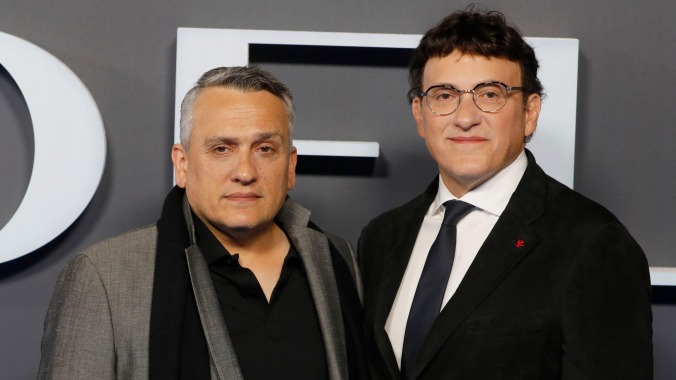Avengers: Endgame director Joe Russo expects a fully AI movie within two years
Joe Russo has a lot of predictions about the future of artificial intelligence in cinema

It’s no secret that the Russo Brothers are creating content with an eye toward the future. The directors behind some of the Marvel Cinematic Universe’s biggest blockbusters have already been dropping ominous warnings about the future of cinema as it relates to Gen Z’s viewing behavior and the rise of artificial intelligence. Now, in a new conversation with Collider’s Steve Weintraub and Epic Games’ Chief Creative Officer Donald Mustard, Joe Russo states his belief that a fully AI movie—one so convincing you don’t even know it’s AI—is only two years away.
Russo, who says he’s “on the board of a few AI companies,” has a lot of ideas for what AI movies would look like. One version is “a constantly evolving story, either in a game or in a movie, or a TV show,” (not unlike the AI Seinfeld parody Nothing, Forever), or it could be your own self-insert platform. “‘Hey, I want a movie starring my photoreal avatar and Marilyn Monroe’s photoreal avatar. I want it to be a rom-com because I’ve had a rough day,’” and it renders a very competent story with dialogue that mimics your voice,” Russo muses. “It mimics your voice, and suddenly now you have a rom-com starring you that’s 90 minutes long. So you can curate your story specifically to you.”
Mustard suggests “the TVs that Samsung and a lot of companies are making now, they already have enough processing power just in the TV itself where we’re just not very far off, where you could render anything in real-time,” meaning you could request your AI TV to insert you into Endgame and watch yourself as it happens. “Make me Doctor Strange,” Russo jokes, but the concept is real: “It’ll just be able to conk you in and swap it out in real-time, and just do it all right there,” Mustard says. “And so, I don’t know the timeline, but I don’t think it’s super far away.”
It all sounds disturbingly Matrix-esque, but Russo asserts that the future is coming “whether we want it or not.” All of this is clearly exciting to the Citadel creator (he laughs about getting “an implant in your eye” to watch content), but he thinks it should be exciting to the rest of us, too. “[The] value of it is the democratization of storytelling. That’s incredibly valuable,” he argues. “That means that anyone in this room could tell a story, or make a game at scale, with the help of a photoreal engine or an engine and AI tools. That, I think, is what excites me about it most.”